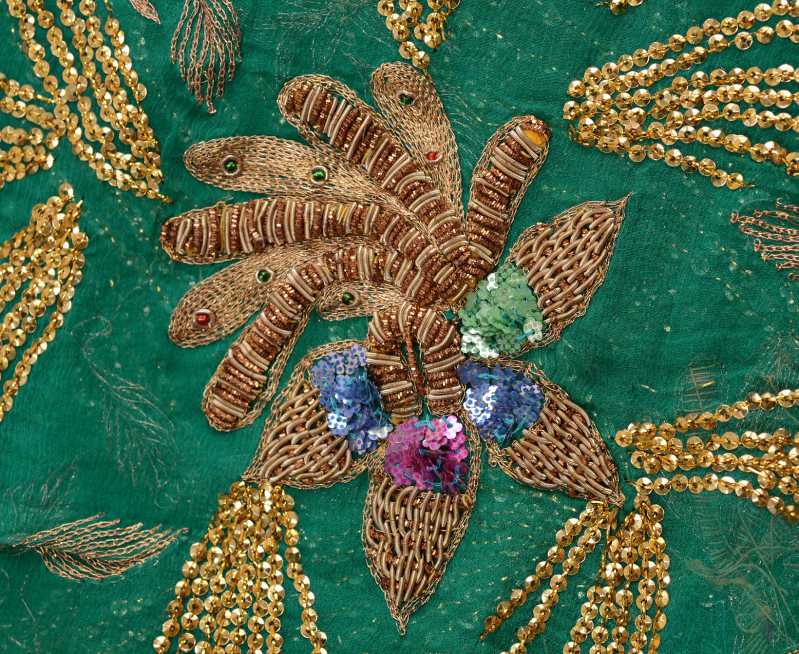===
0874,
7
===

=== |
 |
dev or diiv : 'An evil spirit, devil, demon, an evil jinn , a ghost, hobgoblin; a giant, a monster, a huge fellow or thing'. (Platts p.559)
FWP:
SETS
MOTIFS
NAMES == LANKA; RAVAN
TERMS == 'THEME-CREATION'Through a quirk of Indo-European linguistic and folkloric history, the same word, diiv in Persian and deva in Sanskrit, came to mean an evil supernatural entity in Iran, and a good supernatural entity in India. In Urdu, the pronunciation of diiv as dev is common, which might sometimes cause it to be confused with the modern Hindi dev , 'god' (as in Mahadev, a title of Shiva's). But in the present case, no reference to the Indic-side meaning is intended, for nobody considers Ravan a dev or deva in the Hindu sense of 'god'.
In the ghazal world, the pious Brahman (with his sacred thread, in his idol-temple) receives almost entirely favorable treatment, in accordance with the transgressive, antinomian, Sufistic attitudes of the genre (Mir particularly disdains and reviles the Shaikh). But to bring in a dangerous, demonic (though also often somewhat romanticized) villain like Ravan, and identify him with the honorable company of passionate martyrs for love, is an idea so original-- and so doubly transgressive-- that it's not surprising that SRF credits Mir with masterful 'theme-creation'.
Why does the verse ascribe to Ravan a la;Nkaa saa ghar , a 'house like Lanka', when in fact his house was Lanka itself? Perhaps for rhetorical effect, as in 'How can you complain, when you have a house like this to live in?'. Thus 'a house like Lanka' feels especially emphatic and resonant.